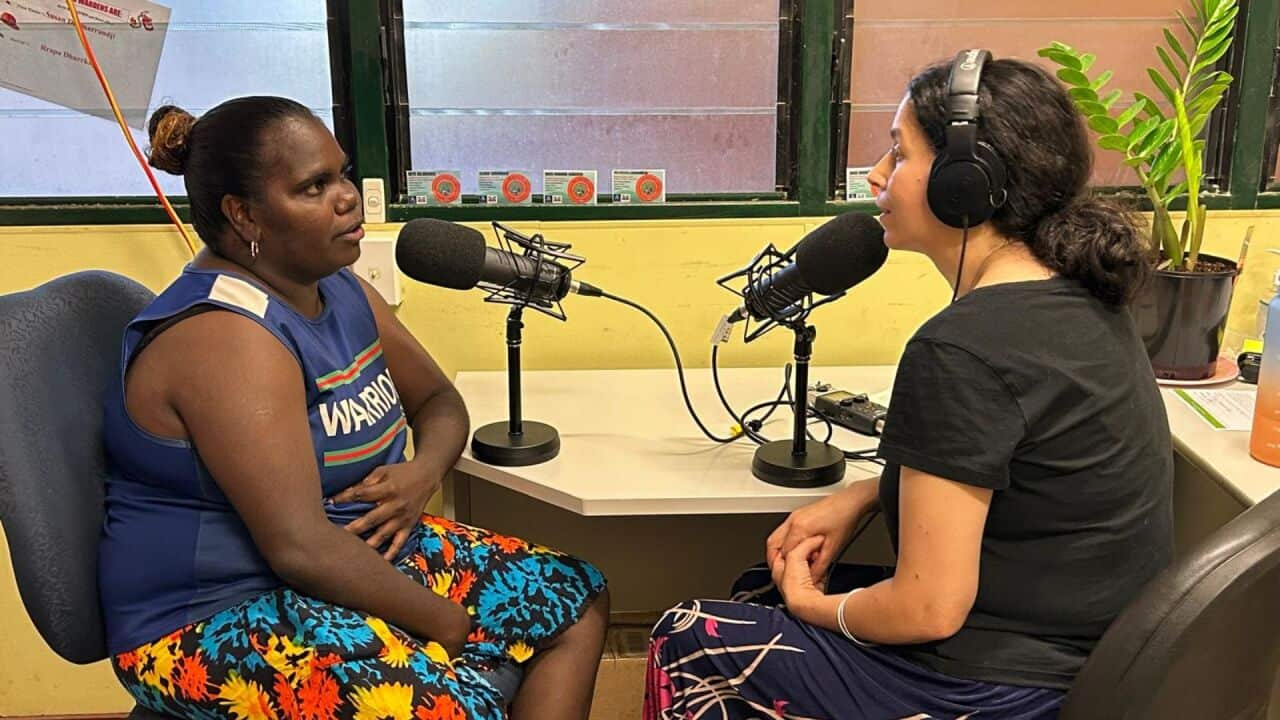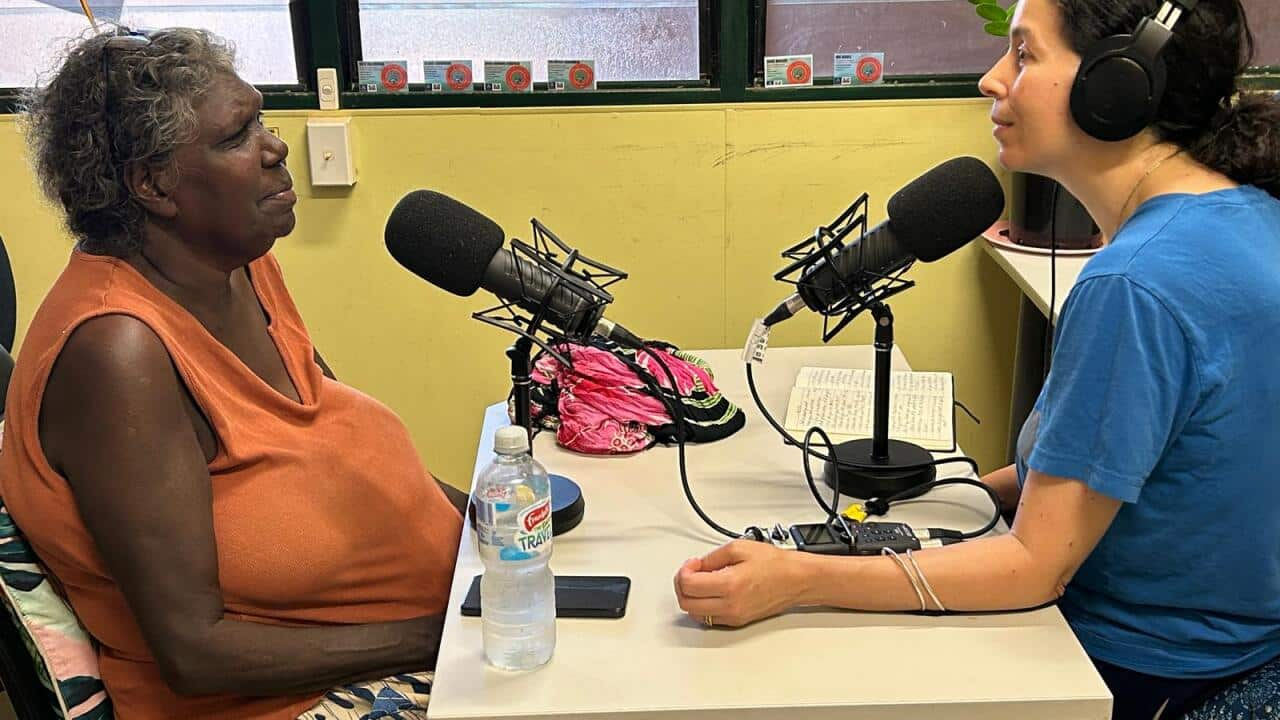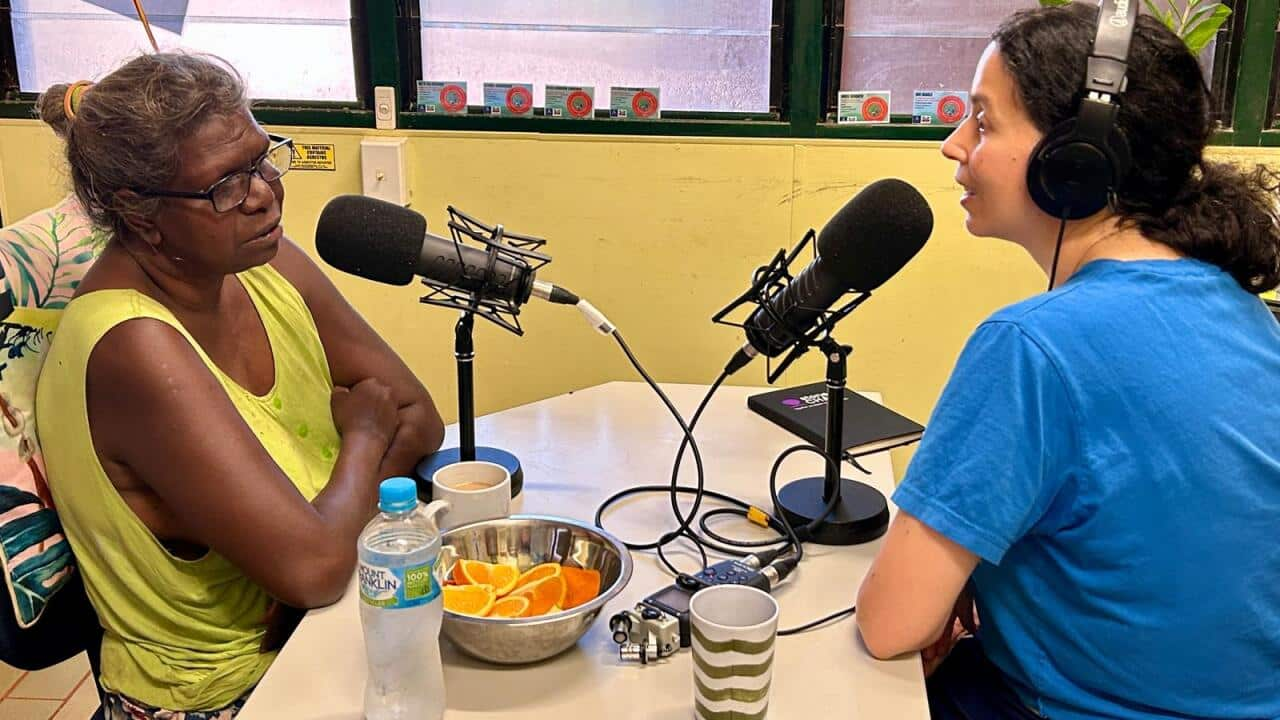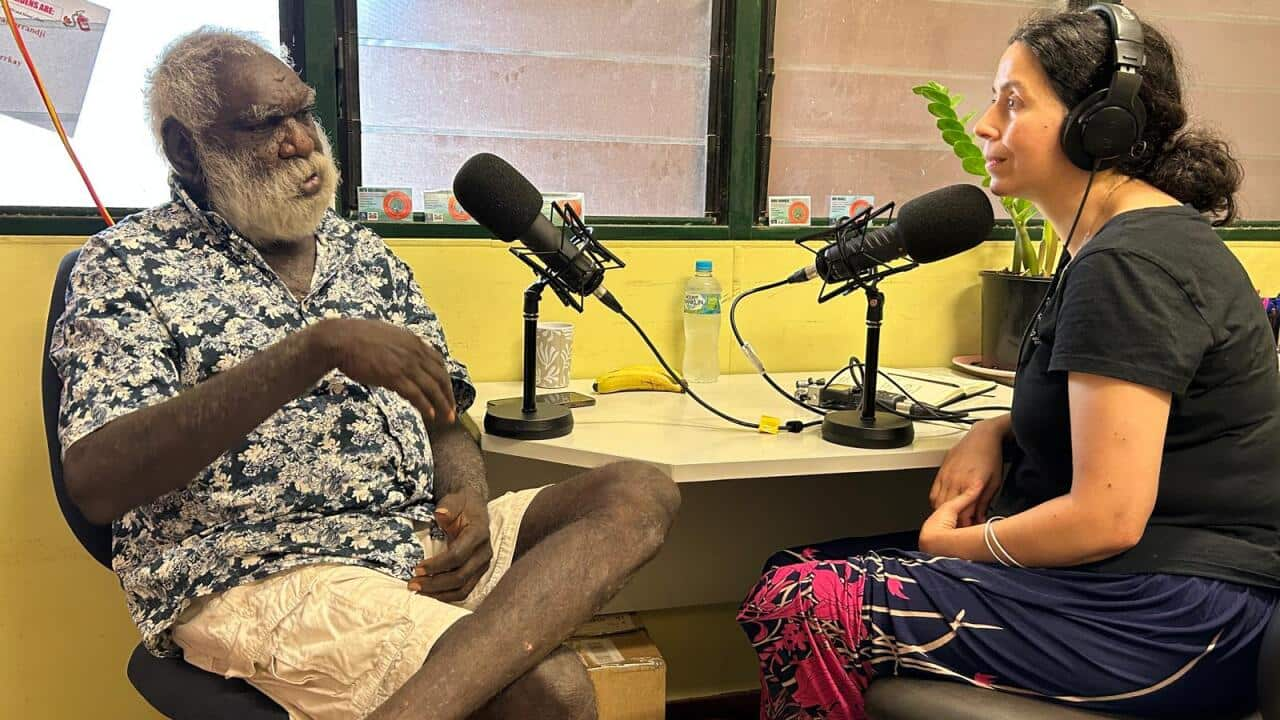What does leadership look like for the next generation? And how does a young Yolŋu woman imagine the future?
Growing up in Galiwin’ku, Zelda has learned to navigate these questions firsthand. Grounded in culture and community, she also faces the realities of a fast-changing world.
In this episode, Sarah and Zelda talk about the role of young leaders in shaping the future of Galiwin’ku. She shares her thoughts on the importance of cultural knowledge, the impact of social media on the next generation, and why it’s more important than ever for young Yolŋu to step up as leaders.
We have to get a lot of young people, young role models to jump out and speak out. We have to get the young people to represent. We have to stand for our rights, and for our community, and our people.Zelda
Credits:
Two Worlds, One Health is created by Dr Sarah Hanieh
Field Host: Dr Sarah Hanieh
Studio Host: Kerri-Lee Barry
Production assistance: Lindy Marlow
Artwork: Ruth Gulamanda Dhurrkay and Rickisha Banba Gurruwiwi
Photo credit: Lindy Marlow
Mixed by Max Gosford
Thanks to Joel Supple for her guidance.
This podcast was recorded on the lands of the Yolŋu people in Galiwin’ku. I pay my respect to their Elders, past and present, and acknowledge their ongoing connection to the land, water, and culture.




